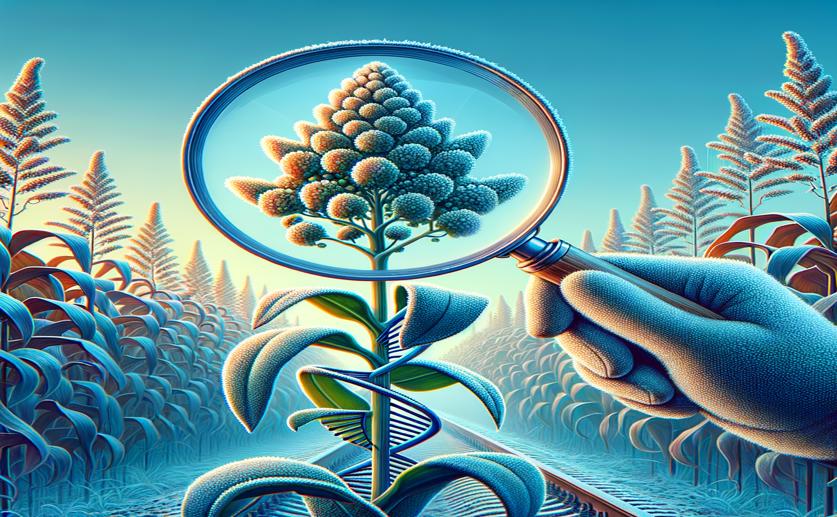
Quinoa's Cold Stress Response and Key Gene Discovery
Jenn Hoskins
17th April, 2024

Image Source: Natural Science News, 2024
Key Findings
- Researchers at Yunnan Agricultural University studied quinoa's response to cold to improve crop yield
- They identified genes involved in polyamine and ethylene production, which are key to plant stress responses
- The study suggests manipulating these genes could help quinoa resist pre-harvest sprouting and cold stress
AgricultureGeneticsPlant Science
References
Main Study
1) Genome-wide identification of polyamine metabolism and ethylene synthesis genes in Chenopodium quinoa Willd. and their responses to low-temperature stress
Published 16th April, 2024
https://doi.org/10.1186/s12864-024-10265-7
Related Studies
2) Quinoa (Chenopodium quinoa Willd.): An Overview of the Potentials of the "Golden Grain" and Socio-Economic and Environmental Aspects of Its Cultivation and Marketization.
3) Seed Dormancy and Preharvest Sprouting in Quinoa (Chenopodium quinoa Willd.).
4) Translational and post-translational regulation of polyamine metabolic enzymes in plants.



 9th April, 2024 | Jenn Hoskins
9th April, 2024 | Jenn Hoskins